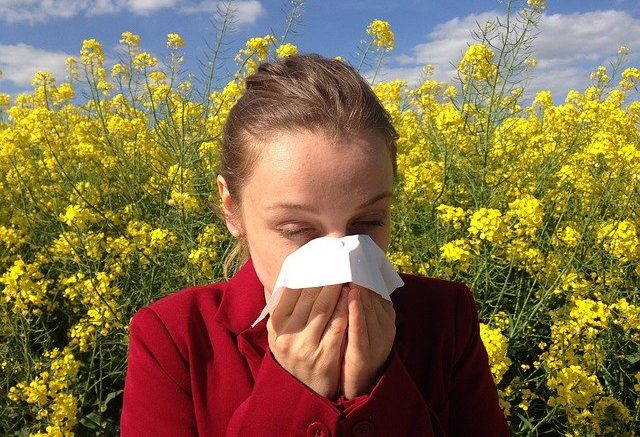As the seasons change, many allergy sufferers find that their symptoms start to run out of control. Allergy sufferers who also have asthma are particularly vulnerable to a change in seasons as new allergens come out and can sometimes be overwhelming. Pollen, dust, and mold can all be bothersome environmental allergens. Cold or hot weather can be another problem for people with asthma.
Prescription Hope Inc. explains the triggers that can make asthma worse and how you can work toward preventing an episode.
Asthma Triggers
To keep your asthma under control, you will need to know what to do when experiencing a flare-up or exacerbation of symptoms. First, you need to understand the triggers that make your asthma flare up and how to prevent an attack from happening. If you treat your flare-ups early, you will be able to bring your asthma back under control.
Each asthma patient has their specific triggers. Dust, pollen, and mold are three of the most common problems. Cold air, fumes from perfumes or chemicals, exercise, wood or tobacco smoke, and weather changes can worsen asthma symptoms. Sinus infections and common colds can also be problematic. Gastric reflux is also a trigger to watch out for.

How Do I Know if I’m Having a Flare-Up?
The most common symptoms are wheezing, coughing, and shortness of breath. Wheezing means breathing that has a whistling, hoarse sound. You should watch yourself every day for these symptoms, and you may only have one or two of them.
Another red flag to watch out for is using your rescue inhaler (usually albuterol) more than twice a week.
What Do I Do if My Flare-Up is Serious?
One of the best ways to tell whether your flare-up is serious is to buy a peak flow meter. Peak flow meters are only about $30, and they can help measure your lung function against your baseline.
A serious flare-up means that your breathing is faster than usual and very difficult. Even when you are sitting still, you will feel shortness of breath. You may only be able to speak a few words at a time, and you will feel tense and anxious. Check your peak flow meter; it will probably show a reading of 50 percent of your baseline or lower.
Feeling sleepy or confused is a sign that you need medical attention right away, preferably in the emergency room or hospital. Don’t wait and hope for this condition to go away on its own since your system could be in serious oxygen debt already.
How Do I Prevent an Asthma Flare-Up?
Asthma patients may feel lost and confused and think that they are not in control of their condition. However, there are steps you can take to prevent future flare-ups from happening possibly.
Identify Your Triggers
It is a good idea to think about all of the attacks you have had and determine what may have caused them. Avoiding the triggers mentioned above is an excellent place to start, though not everyone has the same triggers, and people with mild asthma may only have one or two of these.
Avoid Allergens
If you have asthma and allergies, it is important to keep your distance from things you are allergic to. When you expose yourself to allergens, you will be encouraging a flare-up. This may mean staying indoors when pollen counts are high or when air quality is low.
Change your clothes and take a shower after being outside, especially if the pollen count is high. Put your clothes directly into the wash, and don’t leave them lying around in your home. This will keep allergens contained.
Avoid Smoke
When you have asthma, any kind of smoke could set you off. Limit exposure to tobacco, incense, fires, fireworks, and candles. Stay away from public areas that allow smoking and not allow anyone to smoke in your car or home. If you do smoke cigarettes, ask your doctor for help in quitting.
Try to Prevent Colds and Flu
Practice proper hygiene and hand-washing. Avoid crowds when colds and flu are running rampant. Face mask-wearing may also be an excellent option for preventing colds.
Allergy-Proof Your Home
Allergy-proofing your environment can be a challenge, but it is worth it. Remove sources of dust mites and pollen. Avoid down bedding. You may also want to put your pillows and mattresses in allergy-proof covers.

Immunotherapy Allergy Shots
Allergy shots can help you feel better. They involve injecting a small number of allergens regularly. Over time, your body could become accustomed to the allergen and produce less reaction when exposed. This could keep your asthma more under control.
Take Your Medications
Take your oral and inhaled medications as prescribed by your doctor. Even if you don’t have symptoms, take the medications you are recommended. These medications will help with airway inflammation and keep your asthma under control.
Prescription Hope Inc.
Prescription Hope is focused on helping people afford life-saving medication. Frequently, inhaled corticosteroids such as those used to treat asthma are prohibitively expensive. Prescription Hope Inc. helps you access drugmakers’ assistance programs for a low monthly fee. Douglas Pierce, the CEO of Prescription Hope, believes that no one should have to go without their medications, especially if they have asthma.
